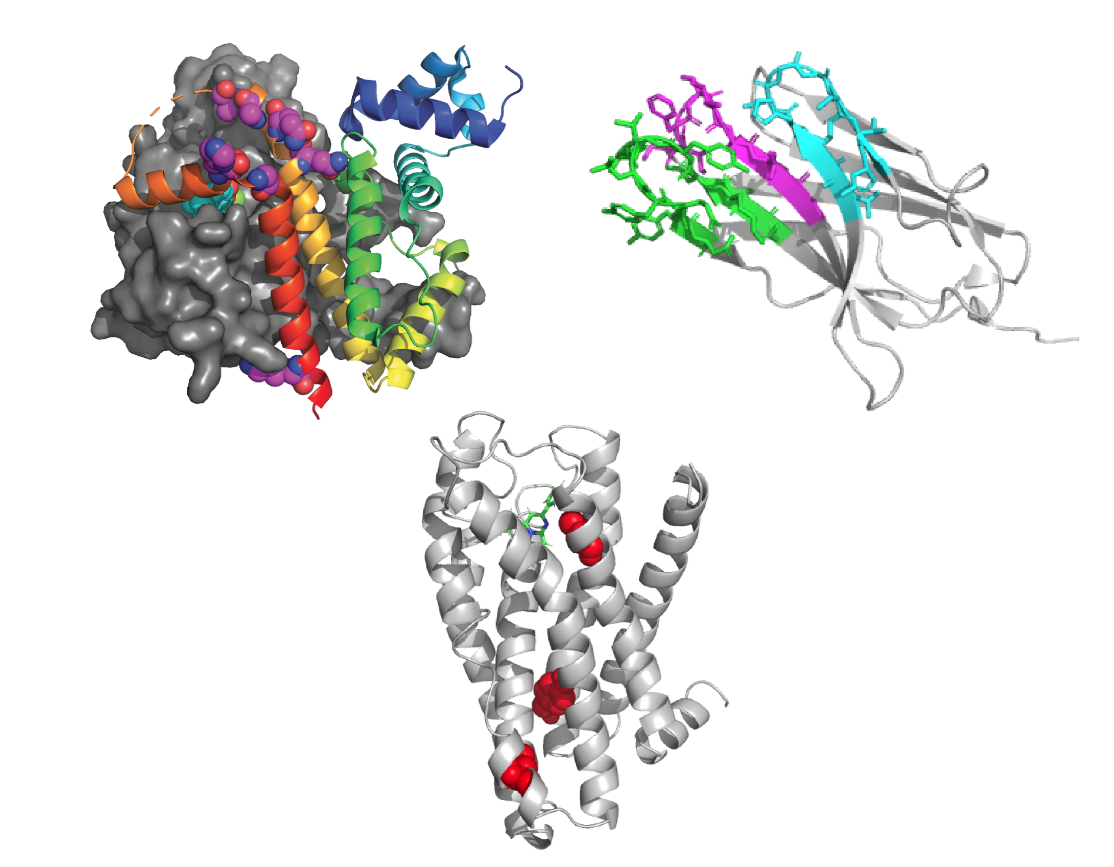Research
Research projects in the English Lab seek to develop tools and datasets that create new paths to discovery and innovation. We engage with projects that maximize our impact, provide broad utility to biological research, and nurture our curiosity. Our published work can be found here.
-

Methods for Mammalian Directed Evolution
The VEGAS Method
Synthetic design of biomolecules is a cornerstone of modern biochemistry. A multitude of methods exist to engineer nucleotides and peptides, here is a growing set of references on the topic. Historically, directed evolution has proven invaluable for tool development in biomedical research. Methods for the directed evolution of biomolecules have almost exclusively used single cell microorganisms such as yeast and bacteria. These methods have been extremely successful, but the developed tools frequently have limited translatable value for use in mammalian systems. We have invented a new method (VEGAS), to efficiently perform directed molecular evolution in mammalian cells to engineer protein-based tools for applications in a broad range of biomedical research disciplines.
The VEGAS method is in its infancy. We are committed to expanding this platform to increase its utility, selection paradigms, and ease of adoption in the research community. Multiple projects focused on expanding the VEGAS platform are ongoing in the lab. Please contact Dr. English for additional information
-

Engineering Tools To Study Cell Signaling
Information is constantly being created, transformed, and transmitted in living organisms. To understand biological processes researchers require tools to simulate, augment, and report these events. Here is a growing list of these tools.
Our lab focuses on creating tools to study cell signaling, where extracellular information is received and transmitted to cells to elicit physiological responses. Using a combination of directed evolution, protein engineering, and synthetic biology we aim to develop robust, precise, and accessible toolsets for ourselves and the whole research community.
We are currently developing libraries of proteins called nanobodies to control and augment the action of endogenous G-protein coupled receptors in cells, tissues, and whole animals. Please contact Dr. English for additional information.
-

G-Protein Coupled Receptor Pharmacogenomics
Approximately 36% of FDA approved drugs target G-protein coupled receptors (GPCRs). Every person has unique mutations in their genome, called variants. A large number of variants have been reported that alter the protein coding sequences of GPCR genes. The potential impacts of these variants on human health and disease are well documented. We do not currently know how each of these variants interacts with prescribed pharmaceuticals.
Our lab is determining how the known human variants in GPCRs augment the activity of FDA approved drugs using the latest methods in GPCR pharmacology. The data from this project will be provided to the public as a database to propel the ensuing era of personalized medicine.
